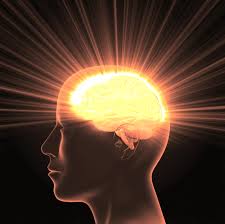7 Ways to keep your Memory Sharp
Aging is a part of life, but there are plenty of things you can try to help keep your memory sharp.
1. Get Up and Go
Exercise regularly. It’s one of the best things you can do to help prevent age-related memory loss. Moving boosts blood flow to your brain and helps nerve cells in the part of brain that controls your memory.
If you’re not active now, check with your doctor to see if there’s anything you shouldn’t do. Then get moving.
Often, water exercises are great, because they aren’t hard on your joints — but you can still get a good workout for your heart and lungs.
Try to get at least 30 minutes of aerobic exercise 5 days a week.
2. Eat Right for Your Brain
One of the best diets for your brain is also good for your heart .
“We know that if your heart’s not healthy and it’s not pumping blood and oxygen to your brain, that can have a negative effect on your brain health,”
So, load up on vegetables and fruits.
- Choose whole grains instead of processed refined grains.
- Cut back on saturated fats.
Fruits and vegetables are especially good because they’re rich in antioxidants, which help protect damage to brain cells. Fill up on antioxidant-rich leafy greens, berries, and tomatoes.
3. Work Your Mind
Whether it’s crossword puzzles or Sudoku, computer games , exercising your brain keeps it working.
Encourage yourself to find new activities that are stimulating and keep you engaged.
Find activities that are challenging and fun and will keep you motivated to do them every day. Try to learn a new language or play an instrument. Take a continuing education class or dance classes. Like physical exercise, mental exercise will be easier to do if you enjoy it.
4. Be Social
Try to be part of your community. It gets you engaged in conversations and activities, and keeps you thinking, talking, laughing, and planning — all important ways to keep your mind nimble.
Studies show that people over 50 who have strong ties with family, friends, and community groups have less memory loss than people who are more isolated.
Socializing may not be the only reason why this happens, but it’s one more good reason to join up with friends to exercise, volunteer, or have dinner. Or you can try new activities to make new bonds. The more active you are, the more your brain is working.
5. Sleep Well
It can be harder to get enough sleep as you get older. But when your brain doesn’t rest, you can have problems remembering and concentrating. So try to get at least 7 or 8 hours of sleep a night.
Set up good sleep habits by going to bed and getting up at the same time every day. Also, create a calming routine for yourself before bed. If you nap during the day, keep the nap short, no more than 30-60 minutes. Try not to nap after 4 p.m., since that can make it harder to fall asleep at night. If you take sleeping pills to help you sleep, know that they can make you groggy the following day and cause memory loss.
6. Fight Stress
When you’re anxious or under pressure, your body makes stress hormones. That helps when it’s an emergency. But having high levels of these hormones for too long can hamper your memory. When you’re feeling stressed, find things that help you relax — maybe yoga, tai chi, deep breathing, talking with a friend or meditation.
7. Learn Memory Tricks
These strategies can help you remember, whether it’s finding your car keys or knowing your new neighbour’s name.
- Make a routine. Always put often-used items, like your glasses, keys, wallet, and phone, in the same place every time.
- Write it down. Jot down things you need to remember — like appointments or grocery items you need — as soon as you think of them.
- Set an alarm. It can help you get to places on time or remember to take medications.
- Leave yourself reminder notes.
- Learn and repeat. To remember names, use the name often in conversation. Try to link the name with a picture that reminds you of that person.







